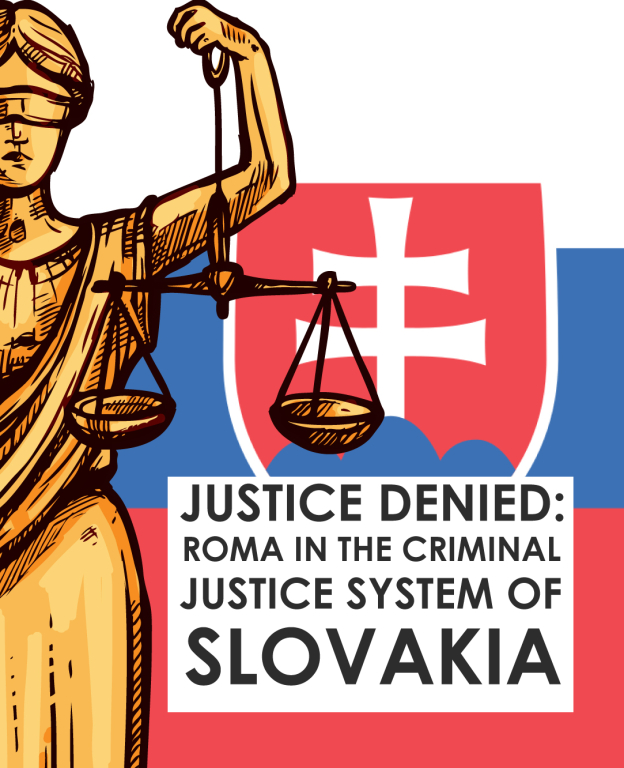Justice Denied in Slovakia: New Report Highlights how Roma face racism, injustice, and routine police violence
09 February 2023

This latest report, Justice Denied produced by the ERRC in partnership with Fair Trials, is part of a series that aims to shine a light on how racism skews outcomes against Roma in the criminal justice system. Despite overwhelming evidence of pervasive anti-Roma attitudes in Slovak society, judges and prosecutors denied that ethnic discrimination played any role in the justice system. This report suggests that at every stage of criminal proceedings, from arrest until sentencing, Romani defendants are faced with discriminatory attitudes and biases that result in unjust outcomes against them; that law enforcement agencies are institutionally racist, antigypsyism is clearly evident in the ways Romani communities are policed; and there is official tolerance of a culture of impunity within law enforcement when it comes to violence and abuse of Roma.
Milan Hudák, in a video interview with ERRC, recalled how on 19 June 2013 in Moldava nad Bodvou, large numbers of Slovak police officers jumped out of their cars and suddenly began beating everyone in sight, young and old alike. The police forcibly entered Romani homes and began smashing furniture, throwing out food and “shouted at us to call our friends in Brussels, who will not help us anyway.”
What Milan remembered most from the day was not the blows or electroshocks meted out by the police, but the fear on people’s faces, with children literally pissing themselves in fright. “We felt like it was in World War Two, it felt so very bad.” When he came back next morning after being released from police custody, the neighbourhood was deserted. Families had fled their homes after the raid, and Milan found them sleeping in a field by the nearby Bodva river.
What followed was perhaps the most cruelly absurd and emblematic example in Europe of how anti-Roma racism perverts the course of justice. As Milan put it, when they filed the criminal complaint the Roma who were beaten were the victims, and the police were the accused. Soon after the investigation opened, the roles were reversed and the Roma became the accused, charged with perjury.
The prosecutor attributed alleged irregularities in their testimonies to their “Roma mentality (mentalita romica)”, which according to an ‘expert’ opinion, is characterised by “low trustworthiness, a propensity to lie and emotional instability”, as well as being asocial and unable to comply with social norms. A full seven years after the initial raid, the victims prevailed in the European Court of Human Rights and in a friendly settlement with Slovakia, each of the applicants was awarded €20,000 in damages and €6,500 costs.
This large-scale, excessively violent raid was part of a pattern of coercive policing of Roma. According to ECRI, despite “the substantial number of complaints relating to serious acts of violence committed by members of the police services against Roma”, none of the subsequent investigations of police interventions between 2013 and 2020 resulted in a conviction or disciplinary sanction against officers involved.
What many of the criminal justice professionals who refer to a ‘Roma mindset’ fail to question are the laws and fining policies of a system that criminalises the most marginalised for the commission of petty offences, that disproportionately targets and incarcerates Roma, and only serves to exacerbate socio-economic exclusion and reinforce discrimination.
The ready resort to racist prejudice by many judges, prosecutors and police when talking about Roma, combined with their emphatic denials that prejudice plays any part in their deliberations and assertions that all are equal before the law, reflects the extent to which anti-Roma racism is normalised in the processes, attitudes and behaviour of these institutions. This report provides further evidence of one unassailable fact – that Roma face structural racism at all stages of the criminal justice system.




